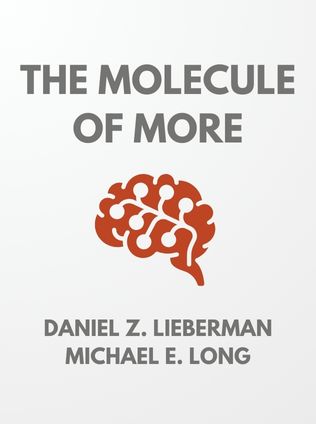
The Molecule of More
How a Single Chemical in Your Brain Drives Love, Sex, and Creativity—and Will Determine the Fate of the Human Race
By Daniel Z. Lieberman and Michael E. Long
Published 01/2018
About the Author
"The Molecule of More" is a collaborative work by Daniel Z. Lieberman and Michael E. Long, each bringing their unique expertise to the exploration of how dopamine influences human behavior. Daniel Z. Lieberman is a renowned psychiatrist specializing in addiction and emotional disorders. As a Senior Vice President of Mental Health at the telehealth company Hims & Hers, and a professor of psychiatry at George Washington University, Lieberman has a rich background in clinical practice, teaching, and public speaking. His appearances on networks like CNN and ABC often focus on the intersection of neurology, biology, and human behavior, making him a trusted voice in the field of mental health.
Michael E. Long, though originally trained as a physicist, has carved out a successful career as a writer and educator. He is known for his work in public relations and speechwriting, having penned speeches for members of the U.S. Congress. As the director of writing for Georgetown University's graduate program in public relations, Long blends his scientific background with a keen understanding of communication, making complex ideas accessible to a broad audience. Together, Lieberman and Long provide a comprehensive view of dopamine's role in shaping our desires, beliefs, and actions.
Main Idea
"The Molecule of More" explores the profound influence of dopamine, a neurotransmitter, on nearly every aspect of human life. Dopamine is described as the "molecule of more" because it is the driving force behind our desires, ambitions, and the relentless pursuit of new experiences. The authors argue that dopamine is responsible for much of what makes us human—our creativity, our political beliefs, our love lives, and even the decisions we make daily. Dopamine is not just about pleasure; it is about anticipation, the "what if" scenarios that propel us into the future. By understanding how dopamine works, we can gain insights into our behavior, relationships, and even the trajectory of human civilization.
Table of Contents
- Introduction: The Power of Dopamine
- Dopamine: The 'What If' Chemical
- How Dopamine Affects Behavior
- Dopamine and Creativity
- The Political Brain: Dopamine and Ideology
- The Dopamine Balance: 'What If' vs. 'What Is'
- Dopamine and Human History
- Conclusion: The Future of Dopamine
Dopamine: The 'What If' Chemical
Dopamine is a neurotransmitter that acts as both a motivator and a reward system within the brain. When we encounter something new or unexpected, or when we make progress towards a goal, dopamine is released, creating a feeling of pleasure. This pleasure, however, is not merely about the present moment; it is about the anticipation of future rewards. The authors describe dopamine as the chemical that drives us to learn new things, seek unique experiences, and strive for more in life.
This concept of dopamine as the "what if" chemical is central to understanding its role in human behavior. The brain, according to Lieberman and Long, divides the world into two categories: "what if" and "what is." The "what if" category encompasses everything that requires effort to obtain—be it physical objects, experiences, or desired situations. Dopamine fuels our pursuit of these "what ifs," constantly pushing us towards new possibilities.
"Dopamine motivates you to pursue things in the 'what if' category." — Lieberman & Long【4:0†source】
The idea that dopamine not only drives us to achieve but also helps us remember our goals is particularly compelling. For instance, people with Attention Deficit Hyperactivity Disorder (ADHD), which is believed to involve a lack of dopamine, often struggle with object permanence—forgetting about things that are not immediately in front of them. This highlights dopamine's role in keeping our desires and goals active in our minds, motivating us to act upon them.
Sign up for FREE and get access to 1,400+ books summaries.
You May Also Like
The Subtle Art of Not Giving a F*ck
A Counterintuitive Approach to Living a Good Life
By Mark MansonHow To Win Friends and Influence People
The All-Time Classic Manual Of People Skills
By Dale CarnegieFreakonomics
A Rogue Economist Explores the Hidden Side of Everything
By Steven D. Levitt and Stephen J. DubnerQuiet: The Power of Introverts
The Power of Introverts in a World That Can't Stop Talking
By Susan Cain



















